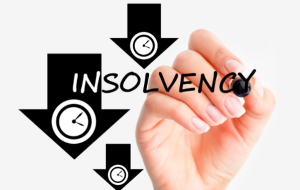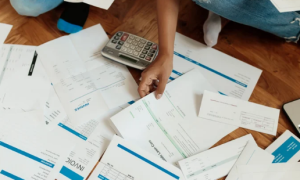Table of Contents
As a limited company director, finding out your company can’t pay its debts can be a major concern. If you feel your company risks falling into insolvency and its future could be at risk, you should seek advice from a licensed and regulated insolvency practitioner before the situation worsens. You should also familiarise yourself with where you stand, your creditors’ rights and obligations, and how to manage and potentially repay the debts before the company has to close.
How to determine whether a company is solvent or insolvent?
 Directors should always be aware of their company’s solvent position, and the main sign of an insolvent company is the inability to repay its debts when they fall due. An imbalanced cash flow could bring with it an inability to pay staff or HMRC, and while it is a tell-tale sign, it seldom occurs in isolation.
Directors should always be aware of their company’s solvent position, and the main sign of an insolvent company is the inability to repay its debts when they fall due. An imbalanced cash flow could bring with it an inability to pay staff or HMRC, and while it is a tell-tale sign, it seldom occurs in isolation.
Another way you can tell that your company is solvent or insolvent is to check for repayment reminders from creditors. Creditors are allowed to prompt you for missed or late payments as long as they are within working hours and at your company’s premises – they can’t contact you at home if the debts relate to a limited company.
What effects can debt have on your company?
 If you ignore the previously mentioned repayment reminders, your creditors can take further action. They could file a Statutory Demand against the company or even a County Court Judgement (CCJ). A CCJ isn’t something to be ignored.
If you ignore the previously mentioned repayment reminders, your creditors can take further action. They could file a Statutory Demand against the company or even a County Court Judgement (CCJ). A CCJ isn’t something to be ignored.
While a CCJ can’t force to clear your business debts what it owes, if left unchallenged, it will stay on the company’s credit file for six years, making it much harder to obtain funding or lines of credit, and means higher interest rates on those you do secure.
Company debts can also lead to visits from debt collectors and even High Court Enforcement Officers (bailiffs). The latter of these can enter company premises and take items equivalent to the debts’ value to repay them or specific items that relate to the debts.
What’s the worst your creditors can do?
If you keep ignoring your creditors’ repayment reminders, they can act to force your company into compulsory liquidation. This is done by applying for a winding-up petition, and creditors can apply for this for debts over £750. The petition is then advertised in the appropriate gazette, allowing other creditors to add their debts, and becomes a winding-up order if you don’t contest it. The banks then freeze your company’s bank accounts, making trading impossible.
What can a director do to combat the debt?
 While this can all sound scary, the good news is that directors can act to minimise the effects of their company’s insolvency. First, they should speak to a licensed and regulated insolvency practitioner, who can assess your situation and guide you down the path best suited for your company.
While this can all sound scary, the good news is that directors can act to minimise the effects of their company’s insolvency. First, they should speak to a licensed and regulated insolvency practitioner, who can assess your situation and guide you down the path best suited for your company.
Which solution would be best for you will largely depend on the company’s circumstances. If, for example, the core business model would be viable were it not for the burdensome debts, then a Company Voluntary Arrangement (CVA) could be a feasible option.
A CVA is a formal arrangement which sees the insolvent company repay a portion of its unsecured debts in affordable, monthly instalments. The arrangement usually lasts five years, and any remaining unsecured debt is written off once it concludes. The company can continue trading during the arrangement, and proposing one demonstrates a willingness to repay creditors.
If more substantial changes are required to return the company to a profitable state, then administration could be a more suitable way forward. Administration sees a licensed insolvency practitioner brought in to oversee the company’s day-to-day running, intending to restructure it back to a profitable state.
Sometimes, despite a director’s best intentions, whether it’s due to a large amount of debt or other extenuating circumstances, saving the company might not be possible. In this case, directors can voluntarily close the company through a Creditors Voluntary Liquidation (CVL). Doing so draws a line under the company’s debts and allows the directors to control the entry into liquidation, closing the company in an orderly manner.
If you don’t take the appropriate action to combat your company’s debts, you risk the company being forced a company to liquidate via a winding-up petition. Creditors can apply for a winding-up petition if the company owes them over £750, and if it goes through and becomes a winding-up order, the company’s bank accounts freeze, forcing trading to cease.
To summarise
Debt can affect a limited company in several harmful ways. As well as disrupting operations, it can lead to Statutory Demands and County Court Judgements (CCJs) being filed against the company, which can result in longer-lasting consequences.
Visits from debt collectors and even bailiffs could follow, and if the debt is for more than £750 and the repayment reminders are ignored, creditors can apply for a winding-up petition to force the company into compulsory liquidation. Fortunately, by speaking to a licensed and regulated insolvency practitioner, you can find the solution best suited to help your company tackle its debts and limit their damage.


